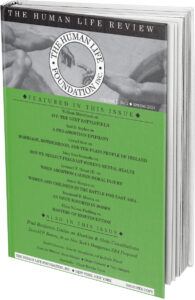Elon Musk, Progress, and Common-Sense Realism
Like theirs of old, our life is death,
Our light is darkness, till we see
The eternal Word made flesh and breath,
The God who walked by Galilee.
We have not known thee: to the skies
Our monuments of folly soar,
And all our self-wrought miseries
Have made us trust ourselves the more.
These two stanzas from the hymn in today’s Lauds (Morning Prayer) mark a transition from the age of faith to the age of folly, from the sublimely transcendent to the hubristic spirit of progress. The idea of progress may seem like something new—or at least no older than the Enlightenment—but in fact it was right there from the beginning in the proud figure of Cain, the farmer, and his offspring, the builders of cities.
Progress is not just the ongoing mastery of nature and the endless rollout of the new and improved. For the post-Christian world, progress has become a transcendent principle, a foundational truth, and from it flows a new architecture of meaning, a new religion.
In the world of progress today, no one inspires awe quite like the middle-aged boy-genius Elon Musk. He initiated the collapse of brick-and-mortar retail with his online payment site PayPal; he started SpaceX, the privately owned space exploration company through which he plans to colonize Mars; and he built Solar City, the largest solar plant in the U.S. Musk also founded Neuralink, which designs interfaces to connect humans and computers; The Boring Company, because he also cares about mundane problems like replacing roads with underground tunnels; Hyperloop, a low-pressure-tube transport network; and Open AI, a non-profit forum for the advancement of artificial intelligence.
But Musk is most famous for being the CEO of Tesla, the world’s pre-eminent electric car company. He is one of the richest men in the world, with a net value approaching 200 billion U.S. dollars, and he is perhaps the greatest achiever of our age. In the religion of progress, achievement is itself a sacrament. All of which sounds rather worldly, but for Musk at least, there is a transcendent dimension.
He has postulated simulation theory, a bizarre thought experiment developed by philosopher Nick Bostrom. Musk claims to believe it is highly probable that what we are experiencing in being alive is not base reality, but rather each of us exists in some form of a computer simulation. Did I mention that Musk is a brilliant marketer? Believe it or not, Tesla, the most talked-about car company on the planet, spends zero dollars on advertising. – Musk is the brand. His soft-spoken, impish, syncopated manner makes us all feel like sly insiders.
I teach an introductory philosophy course, and in the units on metaphysics and epistemology we look at a number of thought experiments purporting to tell us that what we think to be reality is an illusion. One of these is called Brain in a Vat. Another, the grandfather of logical conundrums dating back 2,400 years, is Zeno’s Paradox My students tend to love paradoxes, in part because they require intellectual agility, but also because they temporarily absolve us of real-world responsibilities and transport us to the sunny uplands of smug intellectual superiority.
But the illusion that reality is an illusion doesn’t last long. Students quickly laugh at the story of the quantum physicist who was so immersed in modelling the vast emptiness between protons, neutrons, and electrons at the sub-atomic level that he wore snowshoes around his house to prevent himself from disappearing into the nothingness. Fortunately, when we can’t resolve a philosophical paradox we are saved by a dose of intellectual humility, the day-to-day reality of being, and a philosophical school called common-sense realism, or naïve realism.
And fortunately for Elon Musk, when it comes to reality he has a lot of skin in the game. He has six children and tens of thousands of employees. And, philosophical whimsy aside, he has been refreshingly critical of the global response to the Coronavirus. He has also called Bill Gates a knucklehead. But most importantly, Musk has said some very important things about population control.
Watch this three-minute video titled “My Last Warning” on Musk’s YouTube channel. In it he gives a brief overview of an argument prolifers have been making for decades about the catastrophic long-term effects of low birthrates and population implosion.
These are dark times for conservatives, that is, for those of us who have some sort of reverence for the wisdom accumulated over the millennia. But we should not despair. Common sense realism is robust and durable. The world may appear to be captivated by anything and everything on the forward horizon; it may seem to be swooning into madness. But it really is darkest before the dawn. Like the fall of the Berlin Wall, some of the most transformative moments in history are completely unexpected. Let’s hope we are on the cusp of just such a moment. This morning’s hymn outlines a time-tested path to sanity, hope, and salvation:
We have not loved thee: far and wide
The wreckage of our hatred spreads,
And evils wrought by human pride
Recoil on unrepentant heads.
For this, our foolish confidence,
Our pride of knowledge and our sin,
We come to thee in penitence;
In us the work of grace begin.









